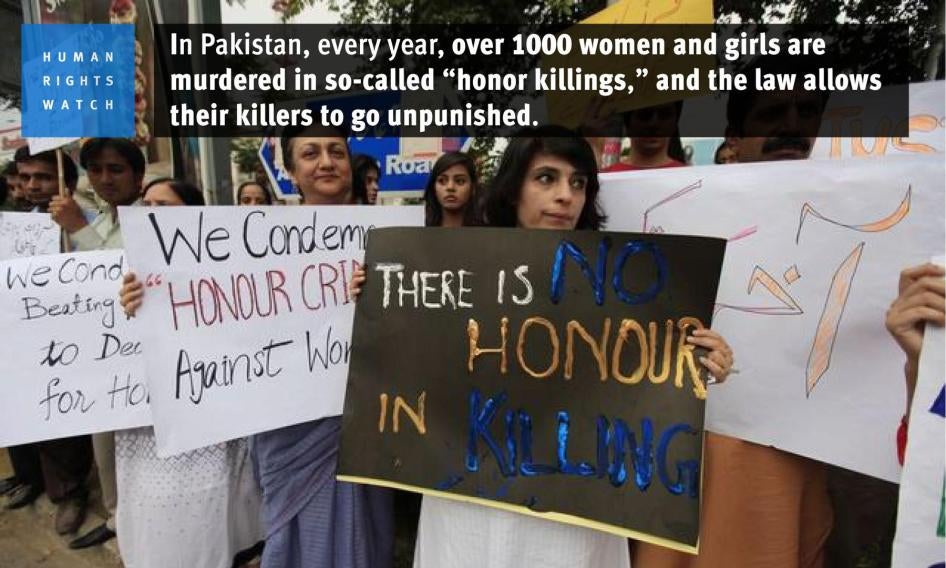First he drugged her. Then he strangled her.
Qandeel Baloch’s brother murdered his sister, a self-created online star in Pakistan known for flamboyant acts, including posting photos of herself with a prominent mullah. In a news conference, her brother confessed his crime and claimed she had “brought dishonor” to her family.
Today, less than a week after Qandeel’s murder, the daughter of Pakistani Prime Minister Nawaz Sharif – a key member of her father’s ruling party – pledged a long-delayed law against so-called “honor killings” would quickly move through the country’s National Assembly.
In life, Qandeel was not just an Internet sensation. She was a survivor of a forced marriage at age 17 to a man she said abused her. She was someone who demanded more freedom than is readily available to a woman in today’s Pakistan. In death, she is one of the more than 1,000 women and girls who are murdered in Pakistan each year through “honor killings.” While Qandeel’s murder drew media attention from around the world, most of these killings pass unnoticed. Pakistan’s law currently allows “honor killings” to go unpunished if the victim’s family “forgives” the crime. In Qandeel’s case, the government took the unusual step of charging her brother, who confessed to the crime, with a crime against the state. This bars Qandeel’s family from dropping the case, although in the vast majority of cases the “forgiveness” exception continues to apply.
In March, prompted by a documentary film about an “honor killing” in Pakistan that won an Academy Award, Pakistan’s senate passed an anti-honor killing bill. But the bill then languished in the National Assembly.
The law still faces hurdles. Pakistan’s influential Council of Islamic Ideology, a body advising the government on religious issues, has pledged to oppose any effort to remove the “forgiveness” provision from the law.
But there is reason for hope. Key political parties have committed to supporting reform. Protesters have taken to the streets, demanding justice for both Qandeel and the hundreds of other women and girls who die at the hands of family members every year.
Qandeel’s death could prove a turning point. If the law is fully reformed, it will be the end of a system where a woman’s life can be seen as worth nothing in Pakistan’s legal system, and where family members can kill with impunity.
This would be a fitting memorial to a brave woman who challenged her country’s conventions and lost her life as a consequence.










